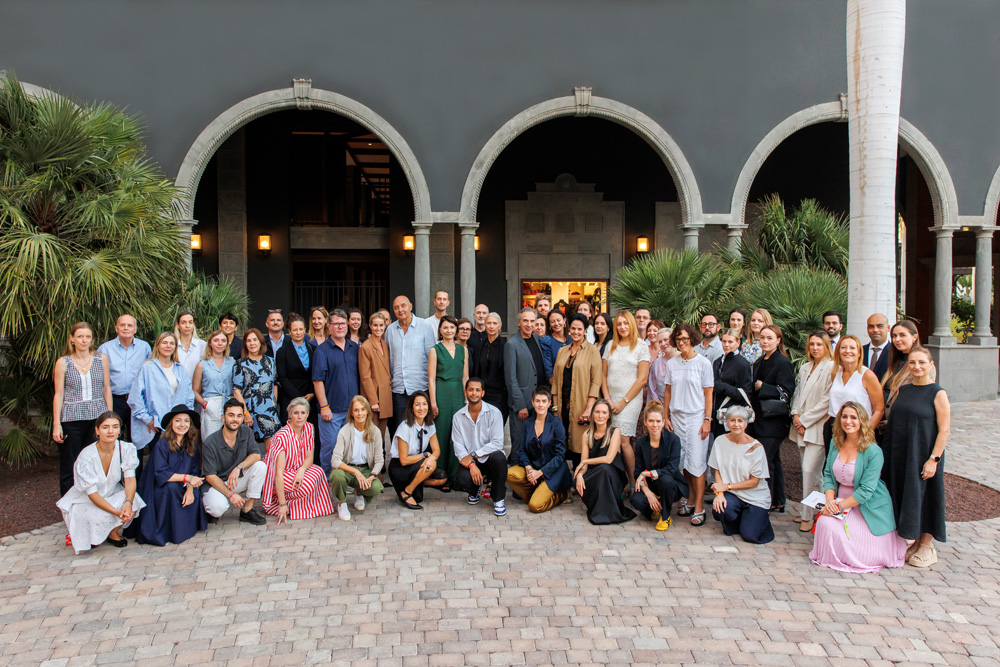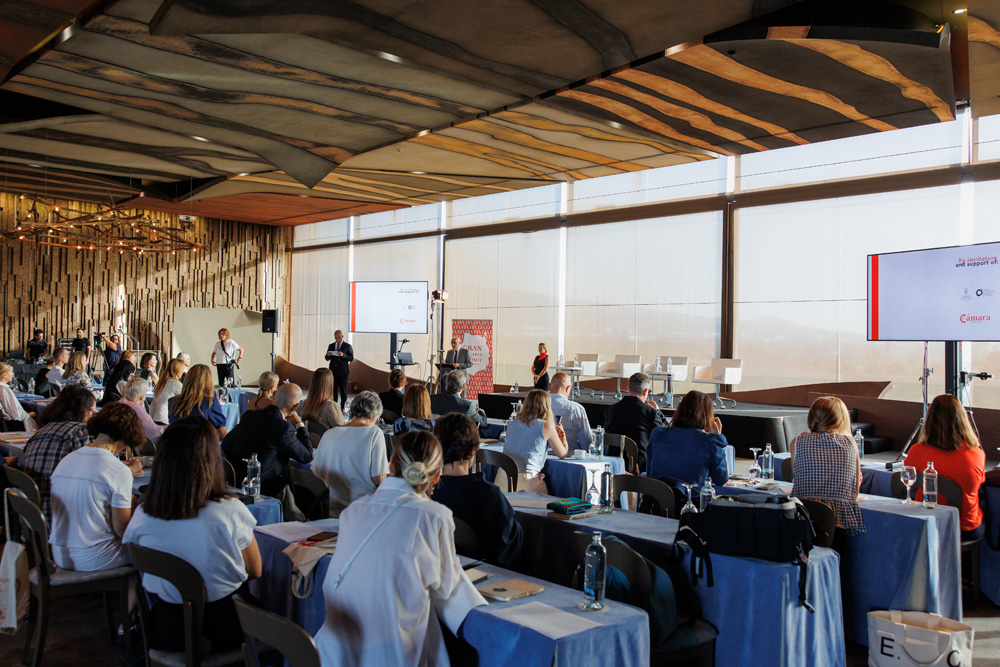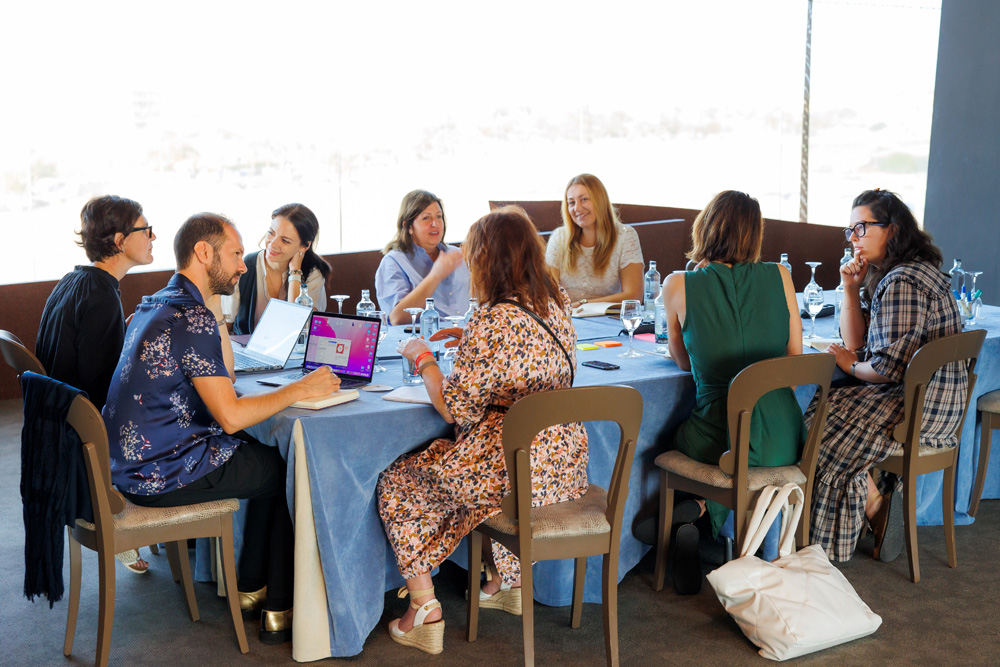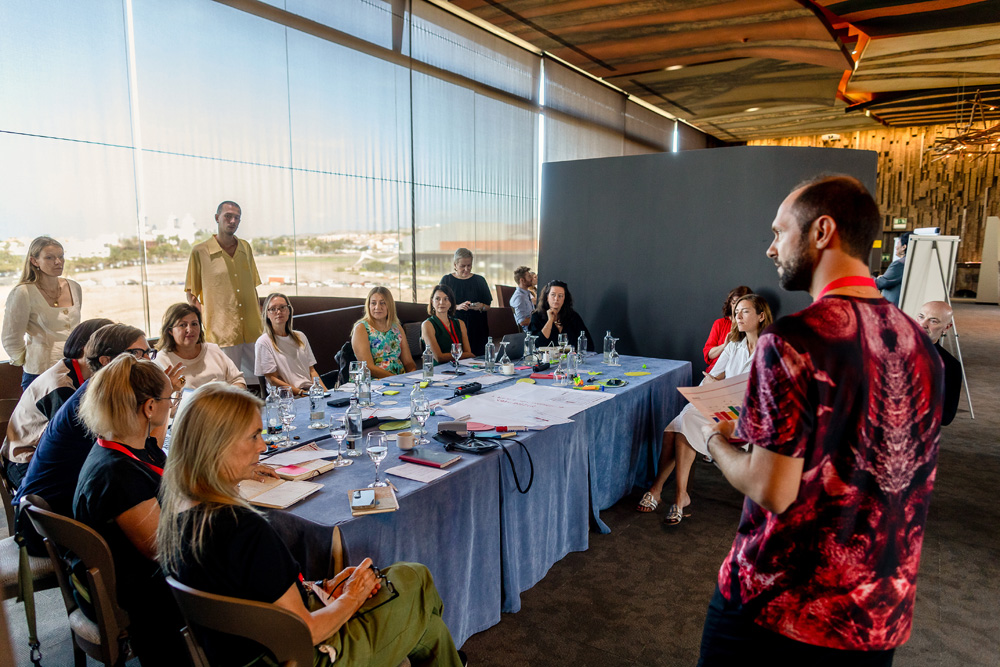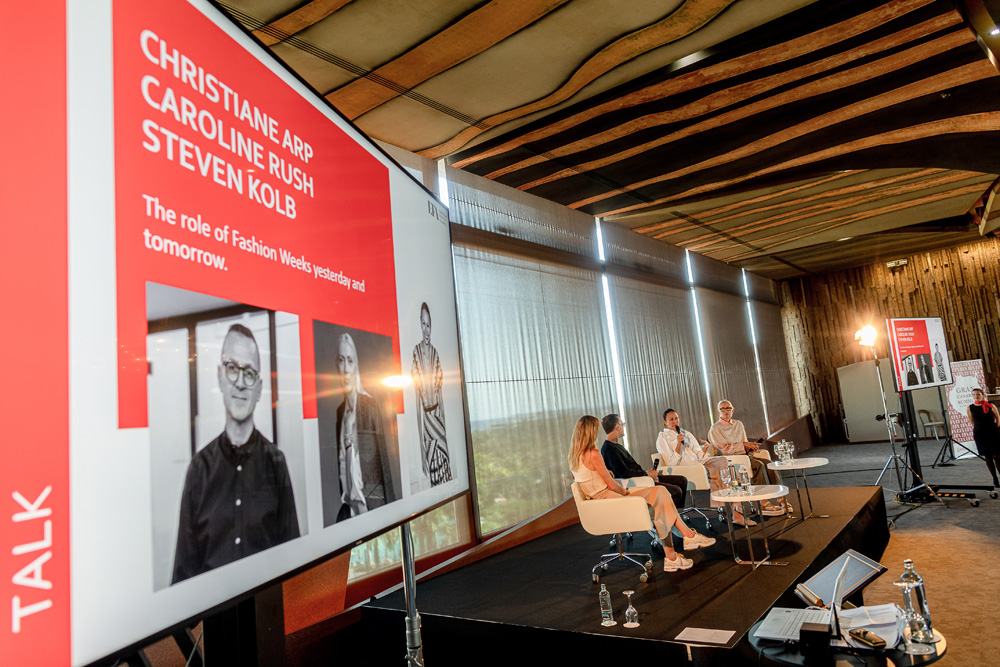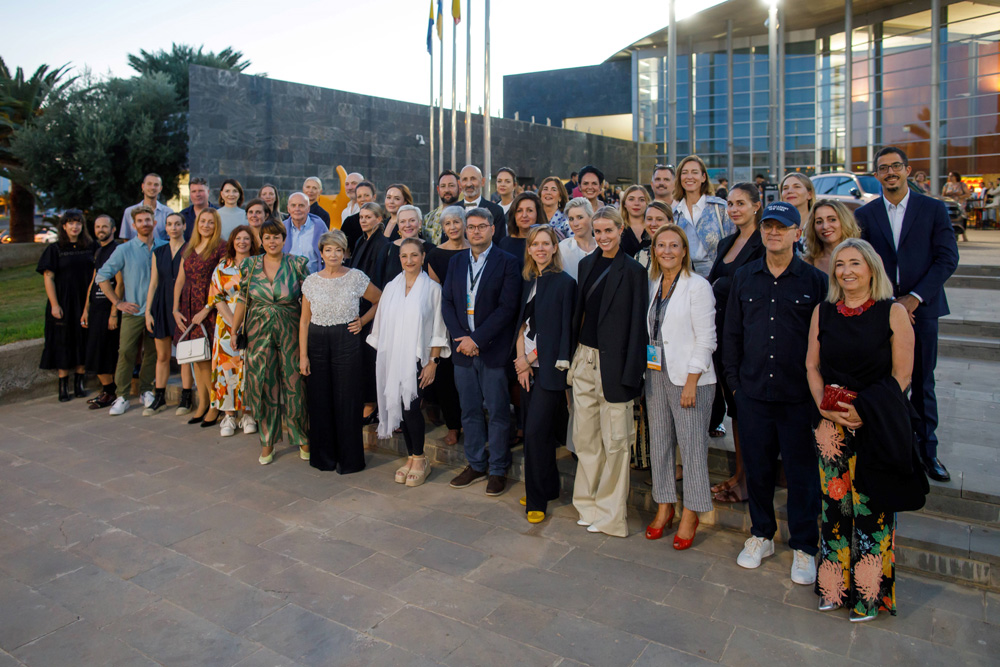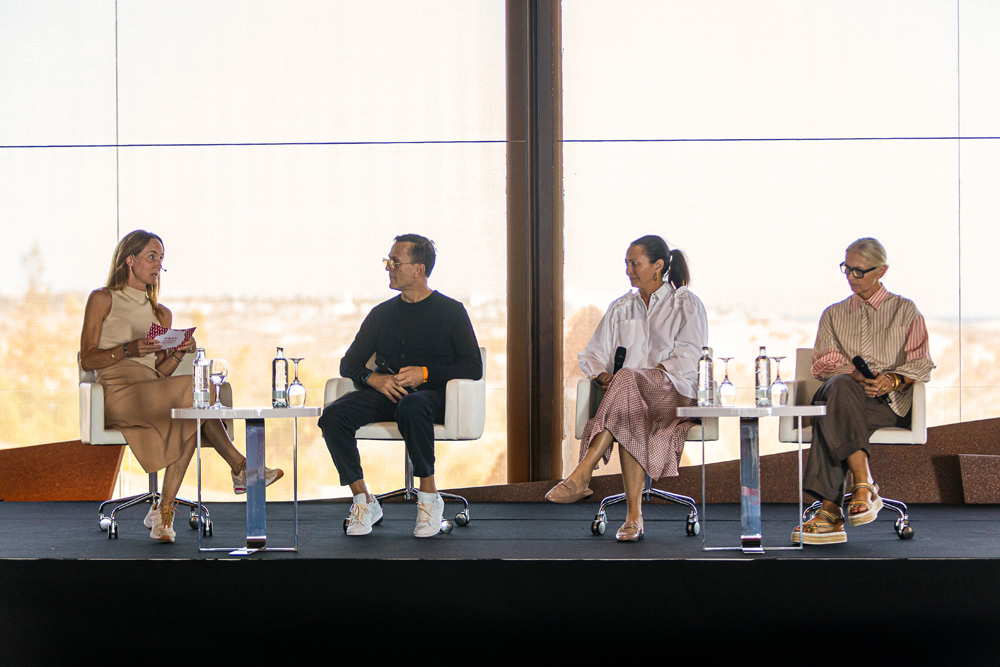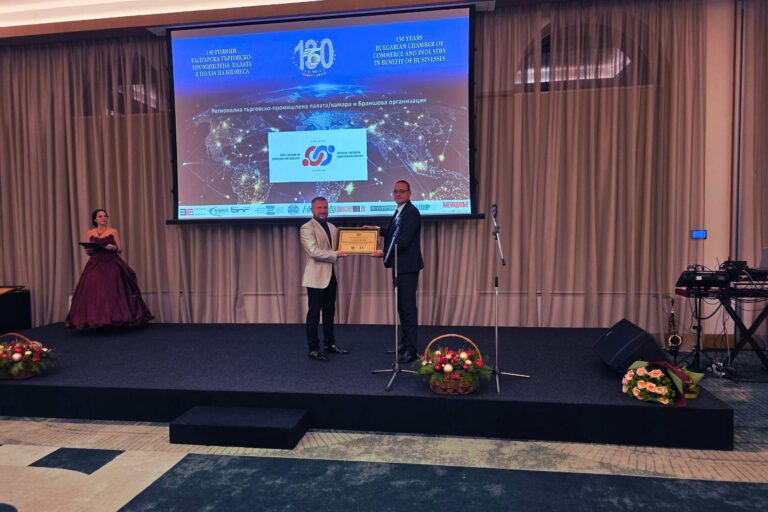European Fashion Alliance: Time for a prosperous, creative-led future for fashion
Greener, more innovative, more creative - at the first conference in Gran Canaria, the members of the European Fashion Alliance "EFA" compiled a package of measures and actions for a sustainable and inclusive future of the European fashion industry.
With the invitation of the fashion network Moda Calida of Gran Canaria and the local council Cabildo de Gran Canaria, the members of the European Fashion Alliance (EFA), founded in Frankfurt in June 2022, gathered in Maspalomas on the 19th and 20th of October during at Gran Canaria Swimwear Week - the only European Swimwear Week - for their first conference. He attended the meeting Silvia Kabaivanova, Chairman of Bulgarian Fashion Association.
The purpose of the conference with the participation of 59 representatives from 23 countries of Europe was to discuss and agree a package of measures and actions that support and promote the necessary process of transformation of the fashion industry in Europe. The alliance, which consists of 29 member organisations, including a range of fashion councils, fashion week events, research and education institutions, represents more than 10,000 European companies in the fashion sector, ranging from micro-enterprises to large corporations.
One of the main topics during the meeting was the "Green Deal" drawn up by the European Union in 2019 by Commission President Ursula von der Leyen to reduce net greenhouse gas emissions to zero by 2050, to which the fashion industry must also urgently contribute in line with the EFA commitment. Because the CO₂ and environmentally destructive footprint of textile production and fashion consumption is still significant. The European Fashion Alliance aims to contribute significantly to the achievement of a CO₂ neutral, environmentally sustainable, non-toxic and fully circular textile industry and to increase and sensitize the awareness of fashion producers, designers and consumers.
Accordingly, during the meeting in Gran Canaria, four pillars were defined on which the targeted measures would be based: sustainability, education, policy and innovation.
The European Fashion Alliance believes that sustainability and digital transformation, combined with innovation, education and labor market measures, will be the driving forces for the fashion industry to make textiles more durable, repairable, reusable and recyclable. In order to accelerate this transition process, EFA will accordingly also focus on cross-cultural exchanges and interactions between creatives and support young talents in their role as agents of change through actions, studies and campaigns.
Silvia Kabaivanova, Bulgarian Fashion Association: "We are happy to be part of EFA - the first transnational alliance of European fashion institutions. We have joined forces with other European fashion organizations to create a network working for a better future of fashion. Our mission is to educate brands and consumers about sustainable and circular fashion and support creativity and innovation in Europe and beyond.”
For the period 2023 to 2027, the European Fashion Alliance adapts this belief in four main objectives, based on the four defined pillars:
- Definition of ethical, social and sustainable code of conduct for EFA members and therefore for the fashion industry.
- New Green Pact for European-level fashion, representing fashion culture and business based on a European-based circular and social fashion ecosystem based on shared data and a shared data measurement system.
- The creation and implementation of practices for sustainable and technological learning and social and cultural responsibility for key EFA stakeholders.
- Creating opportunities for generation Z and for the new generations in their role as leading forces for value in the digital, circular and social transition of the fashion industry
Members agree that EFA's vision and goals must be adapted into concrete action plans and policy frameworks for the next two to three years to drive change. This can only be achieved with a deep understanding of the needs and challenges of the fashion industry, especially the creative and design-oriented stakeholders.
Carlo Capasa – Camera Nazionale Della Moda Italiana: “Our mission is to educate fashion consumers and brands about what sustainability means and convey a high value to the creative approach, emphasizing our appreciation for the people who are part of the system. One of EFA's main roles is to involve our member brands in the stories behind their products and to present a new idea for the fashion of the future. By working together at EFA we can show other industries what can be achieved when we all work together.”
For 2023, EFA will accordingly launch a Europe-wide survey through its members to explore the needs and challenges of micro, small, medium and large enterprises operating in the fashion and textile industries, as well as stakeholders in terms of education and research, and others related to industry.
The data gathered from the survey will enable EFA to create a priority-based policy framework in response to current legislation arising from the European Strategy for Sustainable and Circular Textiles, among others, and for the creation of new EU support policies and programs of the fashion and creative industries. The aim is to provide stakeholders with a better understanding of European legislation - an area where many creative entrepreneurs are still 'lost in translation'.
Pascal Morand – Federation De La Haute Couture Et De La Mode: “Fashion is more than just a market – it's a culture. We are in a market economy; it is important that those outside the market also understand that creativity in fashion can play a role as an engine for sustainability on a more global scale"
Even more, EFA will involve and create opportunities for young talent and representatives by actively engaging them in management roles and activities within the organization with established brands and organizations.
Statements from European Fashion Alliance members:
Caroline Rush – British Fashion Council: "Given the common values and language and common understanding of the measurement tools, it is important for our designers to visit France, Italy, Germany or Denmark, or any other country, to get a good and common understanding of the framework that is required of them by relation to sustainability. Especially for small businesses, for whom it's really challenging in terms of being sad on a global scale. The more we make them look at different measures and standards, the harder it is for them to trade. It's an opportunity to collaborate and break down those barriers."
Dilys Williams - Center for Sustainable Fashion: “We must not only change the content of fashion, but we must also change the rules and goals of fashion. Fashion is often evaluated in economic terms - with growth and numbers. But it is important to create value in terms of culture. To share how fashion can contribute to people's well-being and what impact it has on society - positive and negative."
Cecilie Thorsmark - Copenhagen Fashion Week: “Fashion Week can take advantage of its position to accelerate change and demand change – to move the industry forward. But fashion weeks also need to take responsibility for sustainability, considering reducing the amount of resources in production, lower carbon footprint - emissions and more.
Eddie Shanahan - Council of Irish Fashion Designers: “If our goal is to create a sustainable fashion ecosystem, craftsmanship ensures two important things: high quality and durability. We need to advocate for them, encourage them, develop them further and explain how they add value, not only in terms of price, but also in terms of culture.”
Minerva Alonso Santana - Councilor for Industry, Commerce and Crafts in Gran Canaria, Council of Gran Canaria: "We are very proud and honored to hold the first annual EFA conference on our beautiful island of Gran Canaria during 'Gran Canaria Swimwear Week'." The European Fashion Alliance is a well-developed exchange network. It will allow us to meet other experiences and progress our Ecoisla (Ecological Island) challenge for innovation and sustainable fashion. We also offer other members our experience of 26 years as a community support program for the fashion sector. The conference taking place in Gran Canaria marks the beginning of creating synergies for the improvement of the fashion industry, as well as creating a framework that will allow us to learn and show our values."
María Luisa Martínez Díez – Public Relations Director, Global Fashion Program: “Typically, much of the industry's efforts have been voluntary, but the proposed regulations aim to change that. As part of the EU's Sustainable and Circular Textiles Strategy, there are two key initiatives that will affect textiles: the proposal for a directive to enable consumers to make environmentally conscious decisions when buying products; and ESPR (Ecodesign for Sustainable Products Regulation), which promotes more sustainable product design and establishes sustainable products as the norm.”
About EFA
The European Fashion Alliance is the first international alliance of European fashion institutions. It aims to foster a fruitful, sustainable and inclusive ecosystem for European fashion. EFA acts as a strong collective position, advocating and accelerating European fashion's transition to a more sustainable, innovative, inclusive and creative future.
ASOCIACION CREADORES DE MODA DE ESPANA - AUSTRIAN FASHION ASSOCIATION - BALTIC FASHION FEDERATION - BRITISH FASHION COUNCIL - BULGARIAN FASHION ASSOCIATION - CAMERA NAZIONALE DELLA MODA ITALIANA - CENTER FOR SUSTAINABLE FASHION - COPENHAGEN FASHION WEEK - COUNCIL OF IRISH FASHION DESIGNERS - ESTONIAN ACADEMY FASHION COUNCIL OF GERMANY – FÉDÉRATION DE LA HAUTE COUTURE ET DE LA MODE – FÉDÉRATION FRANÇAISE DU PRÊT À PORTER FÉMININ – FINLAND TEXTILES AND FASHION – FLANDERS DC – GLOBAL FASHION PROGRAM – HUNGARIAN FASHION DESIGN AGENCY – ICELAND FASHION COUNCIL – MODA-FAD – MODALISBOA – MODA CALIDA – MODE SUISSE – NORWEGIAN FASHION CENTER – SKOPJE FASHION WEEKEND – SLOVAK FASHION COUNCIL – SWEDISH FASHION COUNCIL – TASKFORCE FASHION – THE PRINCE'S FOUNDATION – WALLONIE-BRUXELLES DESIGN MODE.
About Gran Canaria Swimwear Week by Moda Calida
Gran Canaria Moda Cálida is a program of action in the textile fashion sector of the island of Gran Canaria, created and promoted by the Ministry of Industry, Trade and Crafts of the Cabildo de Gran Canaria. Fashion for this institution is a growing sector with opportunities for industrial expansion and Gran Canaria Moda Cálida is the framework with which designers and companies support their projects. "Gran Canaria Swimwear Week" by Moda Calida is the flagship of Gran Canaria Moda Cálida and is therefore the main event of the swimwear fashion week, which is the only professional event in all of Europe. Created in 1996 at the initiative of the Directorate of Industry, Trade and Crafts of the Cabildo de Gran Canaria, their aim is to promote the design of Gran Canaria, as well as to support the growth of the local textile sector. Interest in the platform has grown manifold since then, reaching more than 373 million people.
If you are interested in an interview or further information, please contact:
press@europeanfashionalliance.org
www.europeanfashionalliance.org
